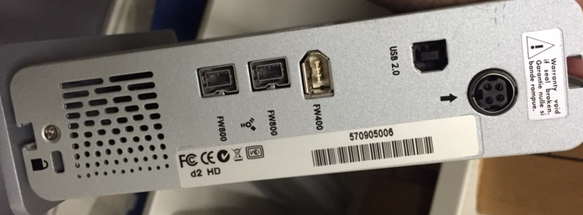New “testbed” for digital archives funded by a National Archives grant

Throughout 2020 we have continued to find innovate ways to enable access to collections. This week our service has re-opened to the public and in the coming weeks we will be launching new digital services which will be talking about on social media using #StillSpecial.
One big challenge, which will increasingly face all archive services, is how to help our users (and even cataloguers) explore large digital collections. Thanks to the award of an Archive Testbed grant by The National Archives , we will be working in collaboration with the University of Glasgow to answer that question.
As its starting point, the project takes the challenges posed by the archive of the filmmaker Stephen Dwoskin – a hybrid (digital and non-digital) archive that includes 20 hard disk drives. The size and nature of the digital archive is challenging and we need to develop different ways to enable access, research and exploration. Such collections are often accessioned and catalogued in collaboration with their creators, but Dwoskin passed away in 2012 leaving a vast amount of data in many formats, especially film footage.
This project will explore how the data and metadata in a catalogue can be represented in a way that works for users and is straightforward to implement. In particular, the project will look at how to use visualisations, cross-reference between analogue and born-digital content, help users to navigate the material, deploy relevant tools and benchmark the archive’s work. The project aims to test practical solutions for any archivists facing the challenge of personal digital and hybrid archives.
The team also hopes that the project will demonstrate what is possible when a professional archive team sets out to learn and develop new skills. We will aim to share what we learn across the archive sector and with our users.
Keep an eye on this news feed for details of how the project is progressing.